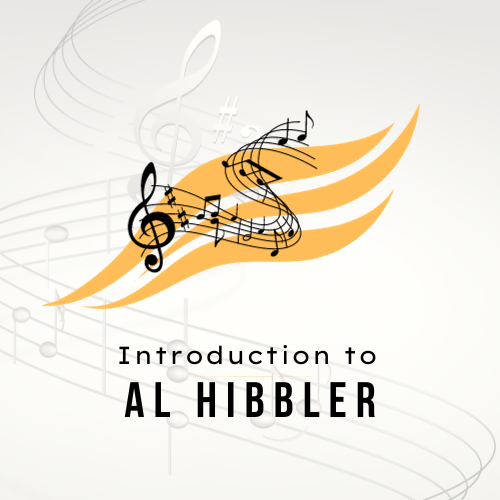Short career summary on Al Hibbler
Al Hibbler was a baritone singer, blind from birth. His versatility led him to sing in different styles or genres including R&B, traditional pop, easy listening and jazz. The Mississippi-born Hibbler had worked as a feature vocalist for some of the the big bands, including those led by Jay McShann, Count Basie, Johnny Hodges and Duke Ellington. With Ellington, Hibbler worked with him for eight years as a feature vocalist, singing numbers including “Do Nothin’ Til You Hear From Me,” “I Ain’t Got Nothin But The Blues,” “I’m Just a Lucky So-and-So.” As a solo artist, Hibbler’s most successful hit single was “Unchained Melody,” a Top 10 pop hit and one of the most memorable 50s music era hits and one of the oldies music classic favorites. Later in life he became a staunch civil rights activist. He died in 2001, aged 85.
Early life and career
American jazz and pop singer Al Hibbler was born in Tyro, Mississippi, on August 16, 1915. Hibbler was blind from birth.
However, his very handicap did not prevent him from pursuing his dreams in becoming a singer. Hibbler first got his musical exposure from singing in his school choir in Little Rock, Arkansas.
Hibbler took his passion for music into a more professional level. He began singing in local clubs, and in 1935 he auditioned for Duke Ellington but failed. However, doors of more opportunity landed on him after winning an amateur talent contest in Memphis, Tennessee; popular Memphis saxophonist Dub Jenkins hired him to become one of Dub Jenkins and the Playmates. Then in 1942 Hibbler joined Jay McShann and his band, and in the following year Hibbler finally became a member of Ellington’s orchestra, replacing Herb Jeffries.
Working with Duke Ellington
Hibbler became a mainstay of Ellington’s orchestra for eight years and sang a variety of Ellington’s standards, including the Top 10 pop hit “Do Nothin’ Til You Hear From Me.” Other Ellington standards that Hibbler featured were “I Ain’t Got Nothin’ But the Blues” and “I’m Just a Lucky So-and-So.” Despite receiving some critical panning for his vocal peformance, Hibbler was also otherwise considered one of Ellington’s best male vocalists. While with Ellington, Hibbler won awards such as the Esquire New Star Award (1947) and Best Band Vocalist from Down Beat magazine (1949). Also by the late 1940s, Hibbler also began releasing solo records, with his first charting single “Trees” reaching #2 on the Billboard R&B singles chart in 1948.
Reaching the peak of his career
However, due to wage disputes, Hibbler finally quit Ellington’s band in 1951. After Ellington, Hibbler continued to work with several musicians including Harry Carney, Count Basie, Johnny Hodges and Gerald Wilson, among others. He also recorded from one label to another, including Mercury and Verve Records Norgran. In 1954 Hibbler released Al Hibbler Sings Duke Ellington on Norgran, which attained some success. The following year Hibbler signed a big contract with Decca Records and recorded for that label with immediate success.
Hibbler achieved his biggest hit with his cover version of “Unchained Melody” in 1955. It reached #3 on the Billboard Hot 100 and topped the R&B singles chart that year. It also became a big hit on the UK singles chart at #2.
Later that year Hibbler also had another Top 10 pop single with “He,” featuring the Jack Pleis Orchestra. It reached #4 on the Billboard Hot 100 and #13 on the R&B singles chart. Other hits include were “11th Hour Melody,” (#21 pop), “Never Turn Back” (#22 pop), and his final Top 10 pop hit “After the Lights Go Down.”
Hibbler’s later music career and his civil rights causes
Aside from music, Hibbler was also engaged in civil rights causes. He actively participated in marches along with protesters and even got arrested twice (in New Jersey in 1959 and in Alabama in 1962) for doing so. Because of his activism, Hibbler turned many record labels off, but Frank Sinatra supported him and signed him to his own label Reprise Records.
Later in his career Hibbler made a few recordings and occasional live appearances up to the 1990s. He collaborated with fellow independent blind muisician, the multi-instrumentalist Rahsaan Roland Kirk, to record an album entitled A Meeting of the Times. Hibbler also sang at Louis Armstrong’s funeral in 1971.
Hibbler died in Chicago, Illinois on April 24, 2001, aged 85. Even after his death Hibbler still has remained one of the vocal wonders in the history of blues and jazz.

